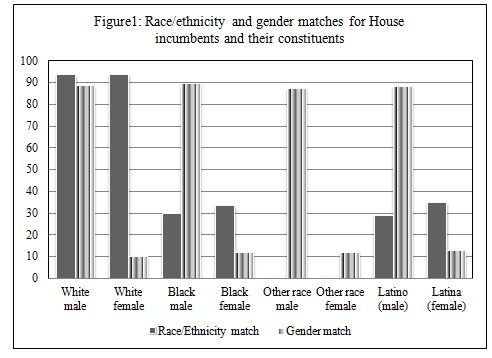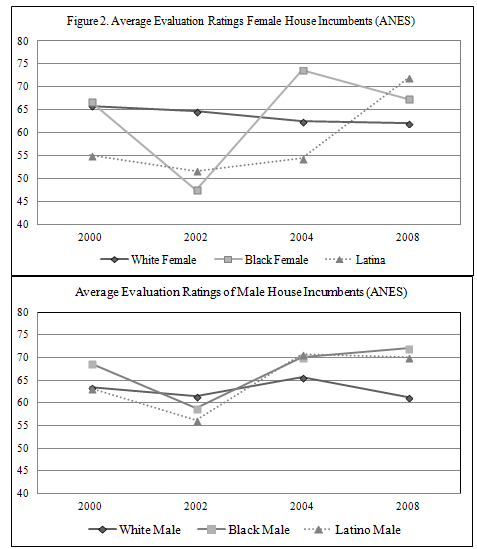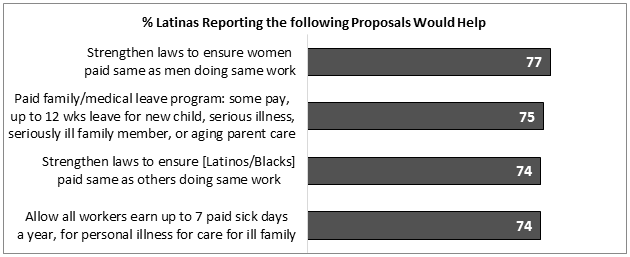The current government shutdown is encouraging more people to reassess their level of support for members of Congress and Congress as an institution. The public is likely to decrease their already awfully low approval ratings for Congress in reaction to the current inability to come to a compromise with the budgeting process. However, as the electoral environment becomes more diverse, researchers are challenged to determine how the descriptive characteristics of elected officials can influence the way they are viewed by the public. Is the public swayed by a politicians’ race, ethnicity or gender as they decide whom to support or if they are satisfied with their representative? How do the demographic traits impact the continued underrepresentation of both racial/ethnic minorities and women? A new book, The Latina Advantage: Gender, Race, and Political Success (2013), contributes to the larger political debate over identity and support for diverse politicians by addressing these questions along with others. This post is a follow up from an earlier post focused on Latinas as political candidates by summarizing some of the main points generated from the book specific to representation. It is important to examine the demographic traits of the public and how they match up with representative’s demographic traits. The representative’s descriptive characteristics of race, gender, and ethnicity can significantly influence citizens’ electoral support.
The Latina Advantage uses national public opinion data from the American National Election Studies (ANES) to examine the public’s support of women and minority U.S. incumbent House Representatives from 1992-2008. The analysis examines the respondents’ support, through both evaluation and voter support, of their congressional incumbent. The analysis includes match variables for the descriptive matches of the respondent’s and incumbent’s gender and race/ethnicity. The ANES responses are supplemented with an original dataset that provides the gender, race/ethnicity, party, and district racial/ethnic make-up of all incumbent U.S. Congressional Representatives from 1992-2008.
There are key differences in the demographic matches for both Congressional incumbents and their constituents in the ANES dataset. The significant differences depend on the respondent’s gender and racial/ethnic identity. Whites have the highest percentage of matches, at about 90 %, for the shared race of incumbents and constituents. Racial/ethnic minority males have the highest percentage of matches, at about 85 %, for the shared gender of incumbents and constituents. Females have a much lower percentage of matches for their shared gender.

How does a shared gender or racial/ethnic identity influence support? The public is more likely to support a politician that is most similar to them. However, when voters do not share the race/ethnicity of a candidate, there is potential for racially-biased voting. In addition, when voters do not share the gender of the candidate, there is also potential for gender-biased voting. The Latina Advantage argues that the important interaction of both race/ethnicity and gender can provide a positive source of political support for females. This challenges the common assumptions of compounding electoral disadvantages for minority female political candidates. The findings show that descriptive identity characteristics introduce an important dynamic when there is an interaction of an incumbent’s race/ethnicity and gender with an interaction of a constituent’s race/ethnicity and gender. Females can be viewed differently from males in politics, especially when they do not share the public’s race/ethnicity. There is evidence that respondents in 2008 provided higher evaluations and approval ratings of their black and Latino incumbents over their white incumbents, for both male and female incumbents.

The Latina Advantage also finds that if the respondents do not share the race/ethnicity of their incumbent, they overcome their potential racial and gender bias and favor the female incumbent. Gender can mitigate the potential of racial bias among respondents who do not share their incumbent legislator’s race/ethnicity. White females lessen the racial threat posed by white incumbents towards their racial/ethnic minority constituents. White respondents also demonstrate less racially-biased voting towards their racial/ethnic minority incumbents if they are female. This supports the argument that gender can “soften” the threat posed by racial/ethnic differences. If the respondents do share the race/ethnicity or gender of their incumbent, they are likely to support their incumbent. Minorities were more likely to support all minority incumbents over the white incumbents. There is increased co-ethnic support for minority incumbents, regardless of gender. The findings highlight the importance of co-ethnic incumbents for both minority males and minority females and provide an explanation for increased electoral support of minority females in politics from both minority males and females.
All of the results demonstrate that minority female politicians are viewed differently from minority male politicians, and that female politicians are viewed differently from male politicians. Overall, minority females have increased electoral support from their co ethnic minorities and by white females over minority male incumbents. The intersection of race/ethnicity and gender does not create a double disadvantage for minority females in electoral politics; instead it creates a positive interaction and more available voting coalitions.
It is important to note that while female politicians can encounter fewer electoral disadvantages, relative to their male counterparts, they still face several imposing obstacles encountered by other females and minorities in politics. Minority female legislators, in particular, can encounter a harder time defending their ability to best represent the interests of their constituency, regardless of their race/ethnicity or gender. Overall, their multiple identities introduce varied experiences for females as they navigate the political environment, therefore it is essential for researchers to examine the diversity of political outcomes that can come from this descriptive interaction.
The book presents evidence that counters the theory of double jeopardy or additive disadvantages for minority women political candidates. The book offers a unique contribution, by proposing that Latinas encounter a positive interaction of their gender and ethnicity that results in fewer electoral disadvantages. As a result, Latinas perform better electorally than Latino men among some key voters. This work argues that the main reasons for Latina electoral success comes from their increased candidate quality characteristics and the softening of the racial threat factor.
Christina Bejarano is an Associate Professor of Political Science at the University of Kansas. Her book entitled The Latina Advantage: Gender, Race, and Political Success (2013) was recently published by the University of Texas Press.
The commentary of this article reflects the views of the author and do not necessarily reflect the views of Latino Decisions. Latino Decisions and Pacific Market Research, LLC make no representations about the accuracy of the content of the article.


